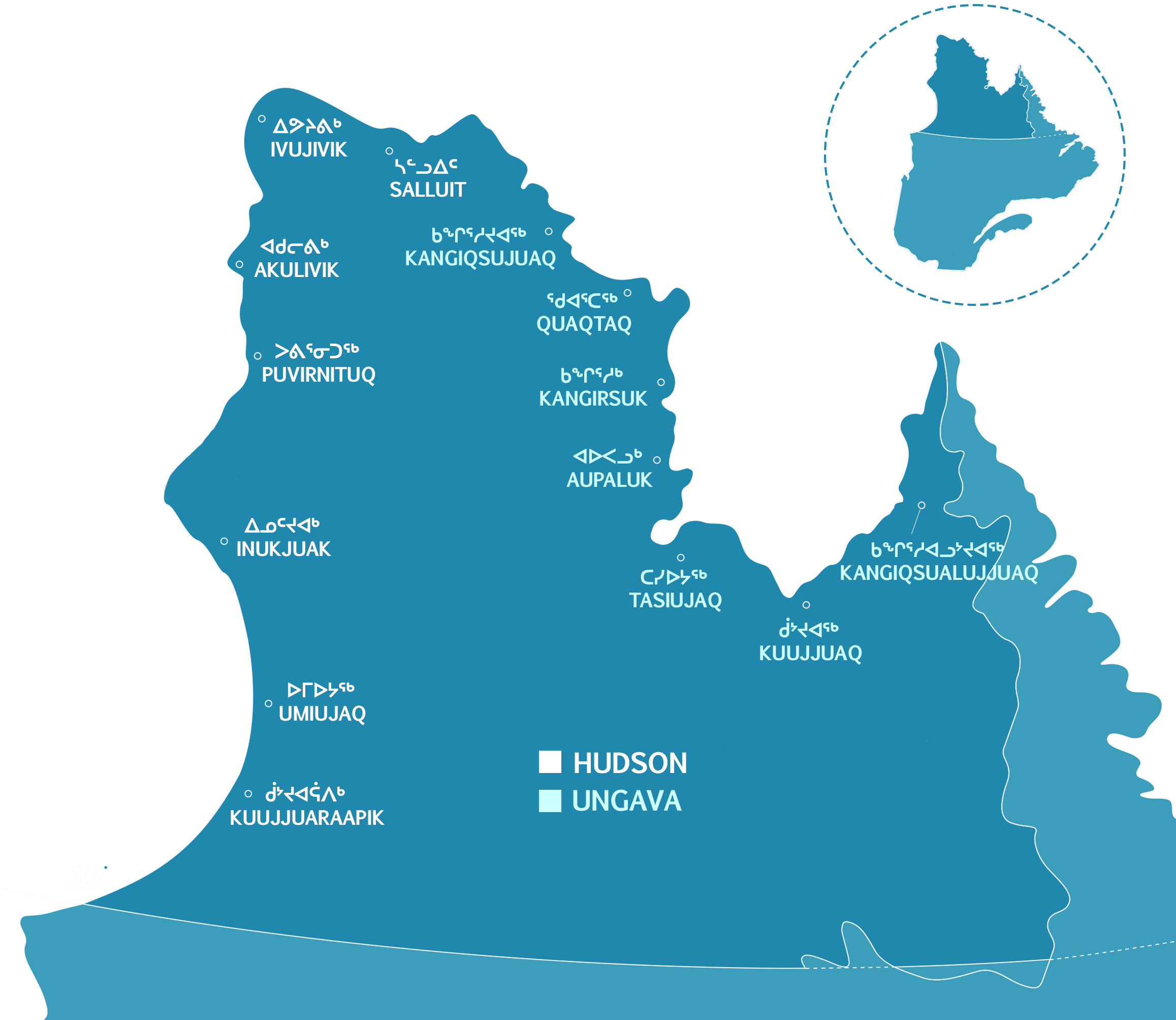What is climate change
According to the World Health Organization, climate change is currently the greatest threat to human health and is making social inequalities worse. Climate projections predict warmer temperatures all across Quebec, and even more so in Nunavik. Extreme weather events will be stronger, longer, and more frequent. In Nunavik, climate change will result in:
- Heat waves becoming more frequent;
- The thawing of the permafrost;
- Conditions that favour coastal erosion;
- More rain in spring and fall;
- A longer wildfire season;
- More snowstorms. (blizzards)
Impacts on health
The consequences of climate change, such as heat waves and wildfires, will have an impact on physical and mental health, as well as on health determinants such as access to food. Climate change causes or aggravates:
- Death, injuries and trauma;
- Chronic illnesses, such as cardiovascular or respiratory diseases;
- Mental health problems, such as anxiety and depression;
- Food insecurity and malnutrition;
- Access to water;
- Access to the land;
- The presence of diseases that pass from animals to humans (zoonoses).
To see the current recommendations, consult the following pages:
Inequalities in the face of climate change / people at risk
Climate change affects us all, but some sub-groups of the population may be more sensitive to its effects, such as:
- Young children
- People with chronic illnesses
- Asthma sufferers
- Pregnant women
- People working outdoors
A tour of the communities to gather feedback
The approach on climate change and health in Nunavik is part of the provincial green economy plan. This approach has two components:
- The analysis of climate risks on the public’s health and well-being
- The elaboration of a regional public health adaptation plan to climate change.
This risk analysis will raise awareness of the impacts of climate change on health and the determinants of health among regional organizations. Nunavimmiut will be able to report the impacts of climate change on the health of their population and participate in the choice of actions to be implemented. The team will be present in your communities in 2025 to gather your feedback.
You can also provide feedback through this form.

April :
- Kagiqsualujjuaq
- Tasiujaq
- Aupaluk
- Kangirsuk
- Quaqtaq
- Kangiqsujuaq
May - June:
- Salluit
- Ivujivik
- Akulivik
- Puvirnituq
September :
- Inukjuak
- Kuujjuarapik
- Umiujaq
October :
- Kuujjuaq
In addition to improving the resilience of communities by working on measures to adapt to climate change, the public health department supports measures to mitigate greenhouse gas emissions, as well as green and eco-responsible actions (e.g. recycling, composting, energy efficiency, etc.).
To contact the team
Environmental health team: environmental.health.rr17@ssss.gouv.qc.ca
Useful links
- Makivvik report: https://www.makivvik.ca/fr/nccas/ (French, English, and Inuktitut)
- ITK strategy: https://www.itk.ca/national-inuit-climate-change-strategy/ (English and Inuktitut)
- INSPQ CC web page: https://www.inspq.qc.ca/changements-climatiques (French only)
With the financial participation of:

